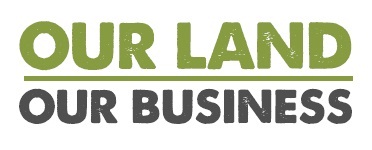Source: Reuters
July 14, 2020
Rina Chandran, Thomson Reuters Foundation
BANGKOK, July 14 (Thomson Reuters Foundation) – A push to privatise land and other resources in countries from Ukraine to Papua New Guinea is hurting indigenous people and the rural poor, while increasing the risks linked to climate change, researchers at a U.S.-based think tank said on Tuesday.
From a rise in deforestation in the Amazon rainforest, a push for land titles in Sri Lanka, to the end of a ban on the sale of farmland in Ukraine, there has been an “unprecedented wave” of privatisation worldwide since 2018, a report published by the Oakland Institute said.
As countries bolster economies battered by the coronavirus pandemic, more resources may be privatised, hurting rural communities who often do not have formal titles, it said.
“The fact that most land, especially in the Global South, is public land or land held under customary tenure systems, is seen as an obstacle to economic growth,” said Frederic Mousseau, policy director at the Oakland Institute and lead author.
“This push to privatise land threatens people and the planet at a time when we need urgent action to curb carbon emissions and protect livelihoods,” he said.
Globally, indigenous and local communities own more than half of all land under customary rights, but only have secure legal rights to 10%, according to Washington D.C.-based advocacy group Rights and Resources Initiative.
In Papua New Guinea, where nearly all land is under customary tenure of indigenous people, the government is opening up millions of hectares for palm oil, mining and timber operations, Mousseau noted.
In Brazil, deforestation has accelerated under President Jair Bolsonaro, with government data showing that it increased by more than a third from August 2018 to July 2019 from the same period a year earlier.
View Full Article at Reuters

Privatisation ‘Wave’ Hurts Poor as Pandemic Heightens Risks
Source: Reuters
July 14, 2020
Rina Chandran, Thomson Reuters Foundation
BANGKOK, July 14 (Thomson Reuters Foundation) – A push to privatise land and other resources in countries from Ukraine to Papua New Guinea is hurting indigenous people and the rural poor, while increasing the risks linked to climate change, researchers at a U.S.-based think tank said on Tuesday.
From a rise in deforestation in the Amazon rainforest, a push for land titles in Sri Lanka, to the end of a ban on the sale of farmland in Ukraine, there has been an “unprecedented wave” of privatisation worldwide since 2018, a report published by the Oakland Institute said.
As countries bolster economies battered by the coronavirus pandemic, more resources may be privatised, hurting rural communities who often do not have formal titles, it said.
“The fact that most land, especially in the Global South, is public land or land held under customary tenure systems, is seen as an obstacle to economic growth,” said Frederic Mousseau, policy director at the Oakland Institute and lead author.
“This push to privatise land threatens people and the planet at a time when we need urgent action to curb carbon emissions and protect livelihoods,” he said.
Globally, indigenous and local communities own more than half of all land under customary rights, but only have secure legal rights to 10%, according to Washington D.C.-based advocacy group Rights and Resources Initiative.
In Papua New Guinea, where nearly all land is under customary tenure of indigenous people, the government is opening up millions of hectares for palm oil, mining and timber operations, Mousseau noted.
In Brazil, deforestation has accelerated under President Jair Bolsonaro, with government data showing that it increased by more than a third from August 2018 to July 2019 from the same period a year earlier.
View Full Article at Reuters